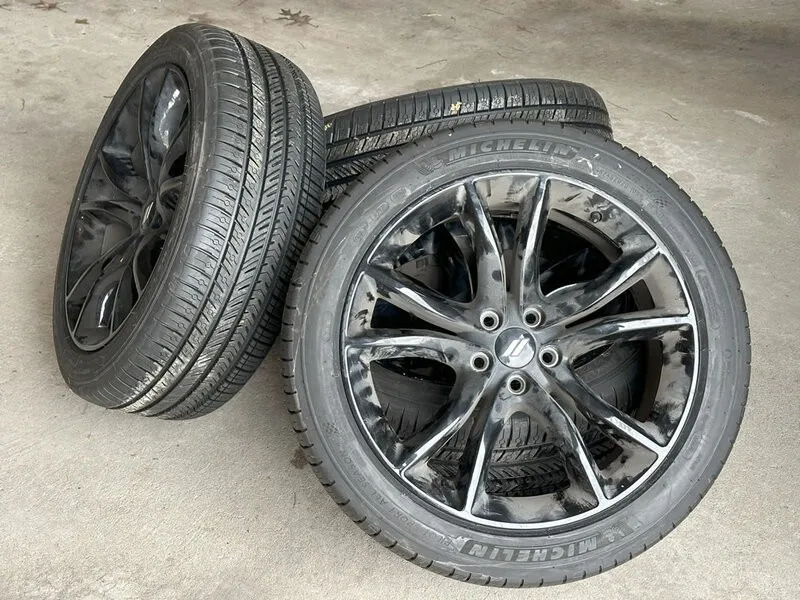All-Season or Summer Tires for the Summer?
April 15, 2024As spring rolls around and winter loosens its grip, it's time for many drivers to swap out their winter tires. The question then arises: should you opt for summer tires or stick with all-season tires during the warmer months? Let's explore the pros and cons of each choice to help you make an informed decision.
Pros of Driving Summer Tires:
-
Enhanced Performance: Summer tires are specifically designed for warm weather conditions, offering superior grip and handling on dry and wet roads. They provide better traction and responsiveness compared to all-season tires.
-
Optimized for High Temperatures: The rubber compound used in summer tires is engineered to perform best in hot weather. This means they maintain their flexibility and grip even as temperatures rise, ensuring consistent performance throughout the summer.
-
Improved Cornering and Braking: With their specialized tread patterns and rubber composition, summer tires excel in cornering and braking, enhancing overall safety and driving confidence.
-
Reduced Rolling Resistance: Summer tires are often lighter and have less rolling resistance compared to all-season tires, which can lead to better fuel efficiency and a smoother ride.
Pros of Driving All-Season Tires:
-
Convenience: All-season tires are versatile and can handle a wide range of weather conditions, making them convenient for drivers who prefer not to switch tires between seasons.
-
Year-Round Usability: If you live in a region with mild summers or infrequent rain, all-season tires can be a practical choice, providing adequate performance in both summer and winter months.
-
Cost Savings: Choosing all-season tires means you only need one set of tires throughout the year, potentially saving money on purchasing and maintenance.
Cons of Driving All-Season Tires:
-
Compromised Performance: All-season tires are designed to perform adequately in various conditions, but they don't excel in extreme heat or heavy rain like summer tires do. Their performance may be lacking in high-performance driving scenarios.
-
Less Responsive in Warm Weather: During hot summer days, all-season tires can become less responsive and may wear out faster due to their rubber composition.
Cons of Driving Summer Tires:
-
Cold Weather Limitations: Summer tires are not suitable for cold temperatures and can harden in freezing conditions, leading to reduced traction and potentially unsafe driving experiences.
-
Limited Wet Traction: While summer tires offer excellent performance in the dry, their performance on wet roads may be inferior to all-season tires, especially in heavy rain.
Ultimately, the choice between summer tires and all-season tires depends on your climate, driving habits, and priorities. If you prioritize performance and safety in warm weather and have the means to switch tires seasonally, summer tires might be the ideal choice. On the other hand, if you value convenience and versatility across different weather conditions, all-season tires could be a more practical option for year-round driving. Take these factors into consideration when making your decision for a safe and enjoyable driving experience this summer.
You can book your Mobile Tire Swap Services in GTA, Ontario using our app: app.allrotors.com or download from:


